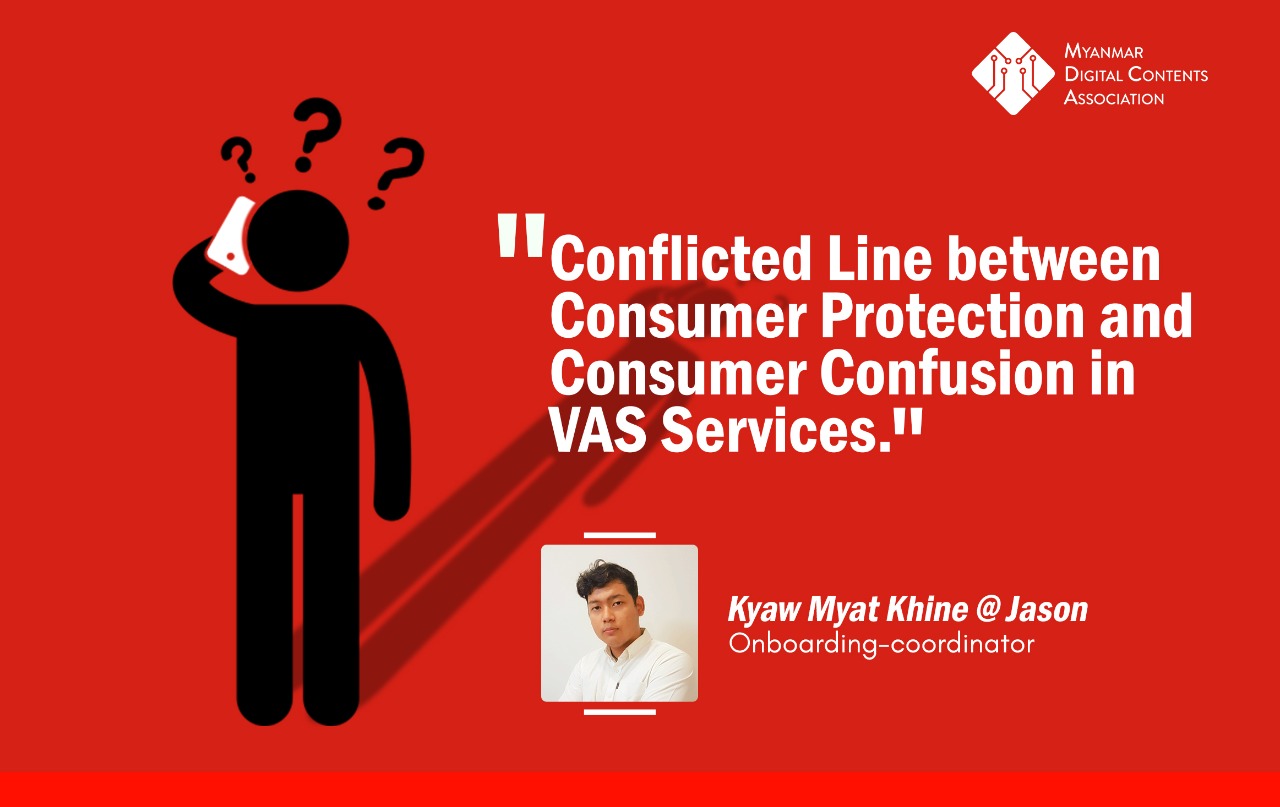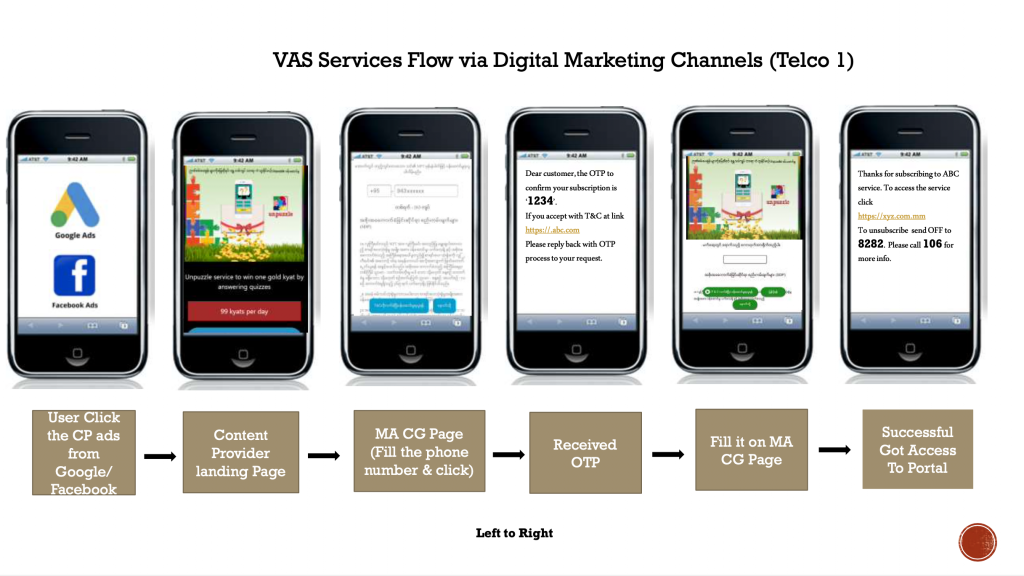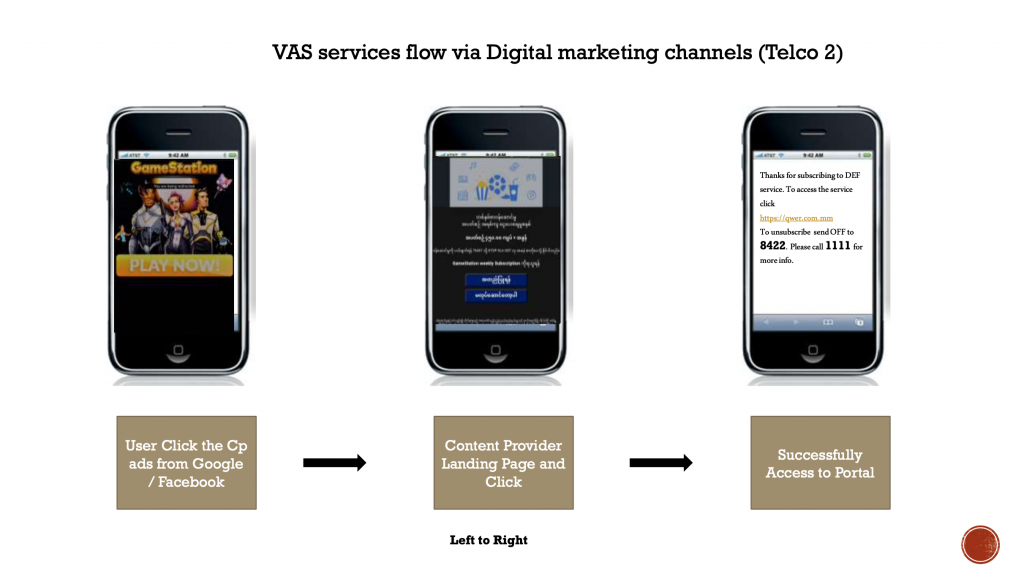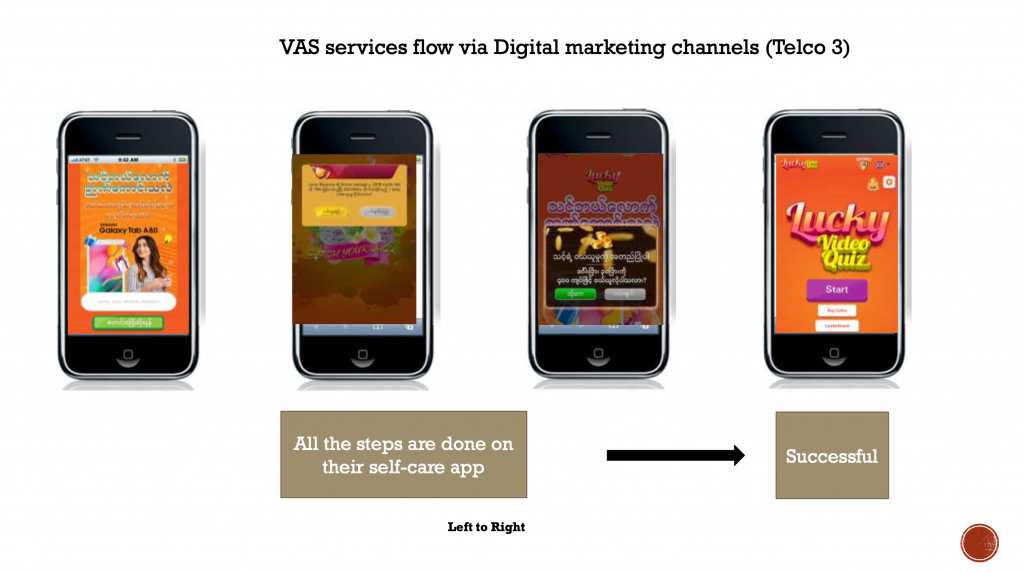
"Conflicted Line between Consumer protection and consumer confusion in VAS services"
Peeking at the background of Myanmar telecommunication history, because of its outrageously high price and complicated registration system, it’s indeed clear that it has never been easy to own a SIM card. Nevertheless, with almost anywhere with only 1500 Kyats in the immediate change from costly registration to a reduction of widespread availability, people eventually dropped off the correct registration process, especially those people who never had a SIM card prior to 2013.
Foreign companies began to enter the local telecommunications sector starting from 2014 and offer consumers a wide variety of options. In addition, some people are eager to try new SIM cards even though they already have one. As a result, Mobile phone companies added additional SIM card slots to their offerings. Along with a survey by Hootsuite in January 2019, Myanmar’s existing SIM card use is 56.57 million and is still rising enormously, which exceeds the country’s overall population of 54.10 million. It probably indicates that in most situations, there will be actually 2 or more SIM cards in the hands of the majority of Myanmar citizens: 105 percent relative to the overall population.
According to a press release by Global Business Analysts, by 2018, the global demand for Mobile Value Added Services (MVAS) is expected to reach US$690 billion, led by increased mobile usage, the introduction of 3G and 4G services, growing mobile network marketability, and increasing consumer spending on telecom services. In order to encourage greater internet consumption and raise increased sales, a great deal of mobile network providers offer a host of broadband added value options in their product offers. The emphasis on MVAS as the big service gaps is also rising rivalry and changing customer loyalties. Subscribers are also chosen based on the value-added offerings for preference when selecting their services providers. In many major countries, smartphone number functionality is also needed, there has been increased competition on telecom operators to provide better service in order to avoid service failures. MVAS in this regard is a perfect way to gain new customers and improve customer satisfaction for telecom operators.”
However, each telecommunication company manages separate flows to provide its mobile value added services (VAS) to the public resulting in confusion. Customer confusion is a major issue for both economic actors and can trigger adverse consumption behavior that leads to negative economic effects for businesses. Since most of the people are digitally illiterate, simplifying the process is the major need for the people. VAS ad flow has been delivered by conventional texts over the last few decades. However, VAS ad flows are now easier and smoother to subscribe than the traditional way when using digital platforms. Confusion, however, still exists between individuals and the only explanation that is fully responsible for this is that VAS ads are still being delivered in both modern and conventional ways. So, how are the VAS ad flows between separate telecommunications providers?
These are the numerous forms of subscribing to each telecom provider’s VAS service.
VAS Ads flow from digital platforms – In order to simplify the process, VAS advertisements are introduced by those digital platforms such as Google and Facebook. In this system, the protocol for subscribing is straightforward. The VAS ads will be initiated on Google and Facebook.



Certain systems are too simple and easy like the data described above and some are exceptionally complicated for people to comprehend. As consumers live in a world where they are overwhelmed with knowledge and where rapid technical changes are taking place, customer confusion is likely to be an ever growing concern. To say, people today do not appear to be able to escape disagreement with certain alternatives. Although VAS services run with a certain system, there have been many complaints about the subscription process which all begins with customer confusion. Although customer confusion is more likely to be customer false, at the end of the day, the customer is always right. So that it is important for the business to have a protected hand by providing clear strategies to eliminate customer confusion in the first place.
Myanmar Digital Contents Association
:Bld 19, #06-704/705, MICT Park, Hlaing Township, Yangon, Myanmar
: +959 894 7977 74